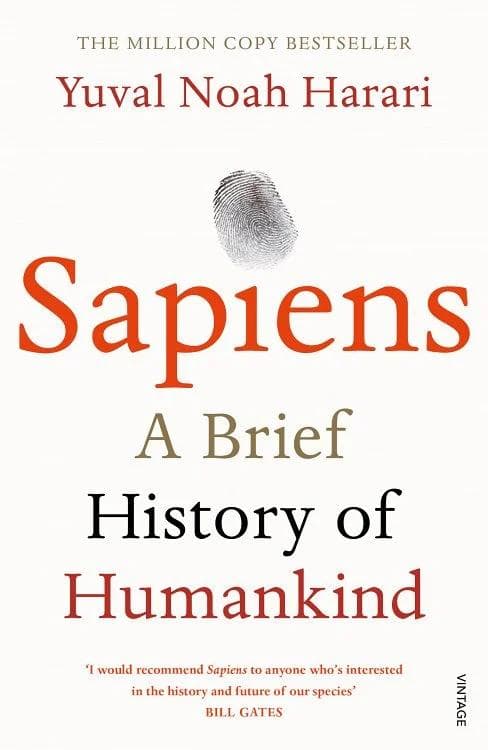
Sapiens:
A Brief History of Humankind
The Sunday Times Bestseller
DIFFICULTY
intermediate
PAGES
512
READ TIME
≈ 660 mins
DIFFICULTY
intermediate
PAGES
512
READ TIME
≈ 660 mins
About Sapiens
Yuval Noah Harari's sweeping history traces how an unremarkable primate came to dominate the planet—and whether our success has made us any happier. He frames human history through three turning points: the Cognitive Revolution, when we learned to unite around shared fictions like gods, nations, and money; the Agricultural Revolution, which brought surplus and cities but also hierarchy and toil; and the Scientific Revolution, which fused discovery, capitalism, and empire into an engine of endless growth.
Harari’s argument is both unsettling and energizing: progress runs on imagination, but every imagined order—from religion to the market—extracts its price in inequality and ecological strain. Blending history, biology, and philosophy, Sapiens invites us to see our species as a work in progress, still driven by myths of our own making—and to ask what kind of stories will guide humanity’s next chapter.
What You'll Learn
- The Cognitive, Agricultural, and Scientific Revolutions and their impact on human societies
- The role of imagined orders - money, nations, and religions - in enabling mass cooperation
- How agriculture, empires, and trade reshaped social structures and ecosystems
- How capitalism, consumerism, and science intertwined to accelerate global change
- The ethical dilemmas posed by biotechnology, AI, and the future of Homo sapiens
Key Takeaways
- Shared myths enable large-scale cooperation
- Agriculture brought surplus along with new inequalities
- Science and capitalism have fuelled rapid change
- Happiness hasn't kept pace with progress
- Humanity is redesigning life itself

